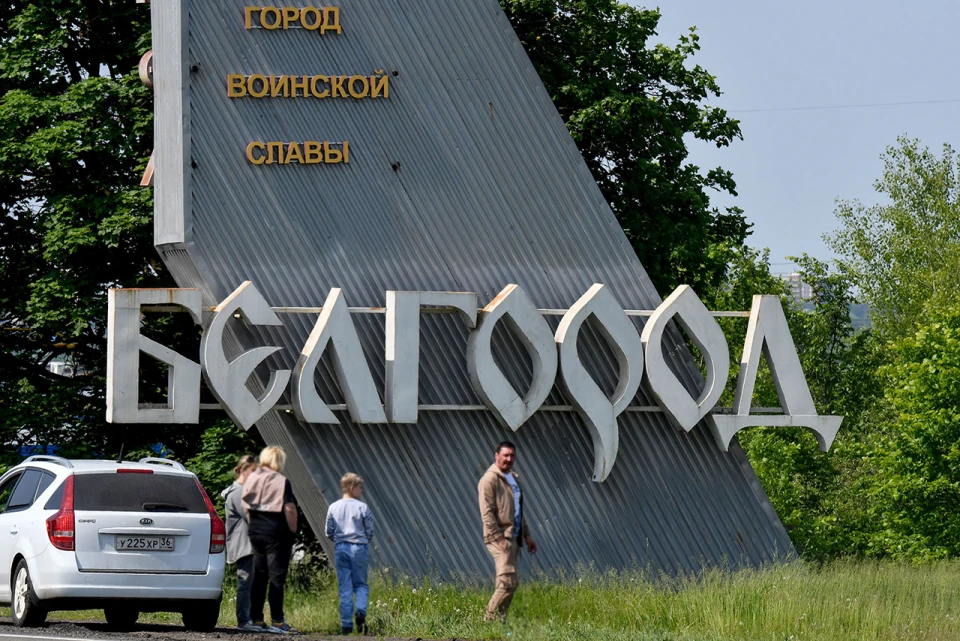
Russia announces evacuation from Belgorod region's border area due to "Ukrainian Armed Forces activity"
On August 12, Belgorod governor Vyacheslav Gladkov has announced the evacuation of residents from Krasnoyaruzhsky district due to Ukrainian military activity
The BBC Russian service reported the information, citing the governor's statement.
"We have an alarming morning. The enemy is active on the border of Krasnoyaruzky district... We are starting to relocate the residents of Krasnoyaruzky district to safer places," said Gladkov.
According to him, transport has already been sent to the area.
The Russian service of BBC notes that Russian military bloggers reported about the attack of one Ukrainian unit on the border village of Kolotylivka in Krasnoyaruzsky district on Sunday. Gladkov called on the villagers to leave three days ago.
Krasnoyaruzsky district is located in the northwest of Belgorod region, about 45 km from the district center, Krasnaya Yaruga, to Sudzha in Kursk region, where Ukrainian units entered on August 6.
Ukraine’s cross-border incursion in Russia’s Kursk region
On August 6, the authorities of Russia's Kursk region stated that the Ukrainian Armed Forces allegedly tried to break through the Russian border, but were allegedly pushed back. Later, the Russian Defense Ministry reported that "the Ukrainian sabotage and reconnaissance group retreated to its territory.”
Ukraine's Main Intelligence Directorate refused to comment on the statements regarding the Kursk region. However, NV media, citing its own source in Ukrainian intelligence, wrote that the events in the Kursk region "definitely did not involve fighters of the Russian Volunteer Corps, who are fighting as part of Ukraine's Armed Forces.”
The Institute for the Study of War noted that the Russian Defense Ministry, acting governor of the Kursk region Alexei Smirnov, and some propagandists have different versions of the events in the Kursk region.
On August 7, Kremlin leader Vladimir Putin convened the Russian military leadership to discuss the situation in the Kursk region, which he called a "large-scale provocation." At the time, Russian Foreign Ministry spokeswoman Maria Zakharova called on the international community to "strongly condemn the Kyiv regime's criminal attacks on Russian territory."
On the same day, Russian media reported that workers at the Kursk nuclear power plant feared that the plant's management had not prepared for a possible attack by the Ukrainian armed forces.
Additionally, in the Kursk region, the Russians have started forming UAV operator units from civilians, providing them with up to 10 hours of training.
On August 7, a state of emergency was introduced in the Kursk region.
On August 8, the Institute for War Studies reported that Ukrainian troops confirmed advancing up to 10 km deep into the Kursk region as mechanized offensives continued.
On August 8, Russia’s National Guard announced that it had implemented additional security measures at the Kursk Nuclear Power Plant to protect a "particularly important facility."
The Washington Post reported that Ukraine has taken control of the gas metering station in Sudzha, Kursk region. Previously, Russia claimed that the Ukrainian Armed Forces had occupied several border villages and part of the town of Sudzha.
Deputy Pentagon Press Secretary Sabrina Singh stated that Ukraine’s actions in the Kursk region in Russia "are consistent with U.S. policy" and do not cause any escalation.
On Friday, August 9, it was reported that terrorists from PMC Wagner intend to fight for Russia in the Kursk region.
On August 10, President of Ukraine Volodymyr Zelenskyy called the operation in Kursk region "pushing the war into the aggressor's territory."
On the night of Saturday, August 10, the authorities introduced a counterterrorism operation in the Bryansk, Kursk, and Belgorod regions of Russia.
On August 11, the Atesh guerrilla movement reported that the Russian 810th Brigade had been redeployed from the Pokrovsk direction (Donetsk region) to the Kursk region. Prior to that, the Russian brigade had been operating in the Kherson region.
- News











































